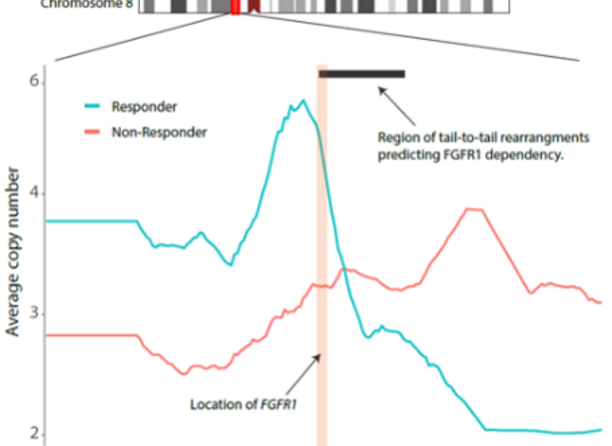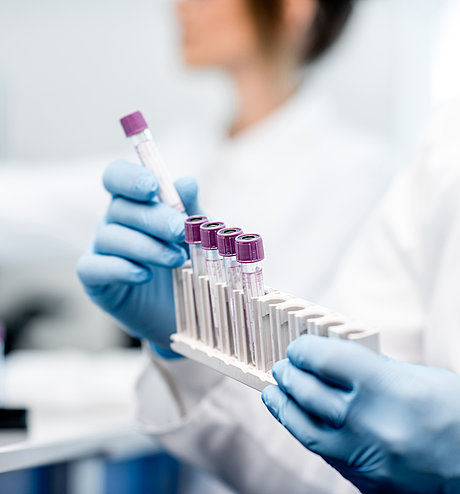Chromosomal rearrangements in lung cancer - Prediction of the efficacy of FGFR blockade for tumor therapy
Ref.-Nr. 5435
Keywords: FGFR inhibitor responsiveness, genetic biomarker, personalized cancer treatment
Members of the FGFR family are key regulators of cellular processes including survival, proliferation, migration, differentiation and metabolism. FGFR signaling pathways are the most frequently mutated pathways in cancer and involved in its development and progression. Distinct FGFR mutations and rearrangements are well established as clinical biomarkers to predict FGFR-inhibitor sensitivity and clinical tumor response. Amplification of the FGFR1 gene is frequently found in Squamous Cell Lung Cancer (SQLC), but has only poor prognostic value. The inventors describe a method to predict the efficacy of FGFR inhibitor cancer treatment for individual patients, based on distinct rearrangements in and close to FGFR1 within the 8p11-8p12 locus. Hence, the method described in the invention, can serve as a diagnostic tool to guide personalized precision medicine in cancer treatment.
Vorteile
- Prognosis of therapeutic response
- Guidance for precision medicine in cancer treatment
- Applicable to various tumor entities
- Genetic biomarker
Kommerzielle Anwendung
Multiple alterations in FGFR signaling are recently identified as oncogenic drivers and FGFR inhibitors are becoming increasingly relevant in everyday clinical practice. The poor prognostic value of FGFR1-amplification demands a more reliable biomarker for up to 20% of patients with SQLC. The invention offers a technology to efficiently identify patients, who would highly benefit from an FGFR inhibitor treatment in cancer therapy.
Aktueller Stand
The invention was validated in 52 FGFR1-amplified squamous cell lung cancer tumors. For 26 samples the FGFR inhibitor sensitivity was known (9 responder and 17 non-responder), including 10 samples from a FGFR-inhibitor clinical trial (4 responder and 6 non-responder). In case of interest, we are pleased to inform you about the current status of the patent.
Technologie-Reifegrad
1
2
3
4
5
6
7
8
9
Versuchsaufbau in Einsatzumgebung
—
An invention of University Hospital Cologne.



